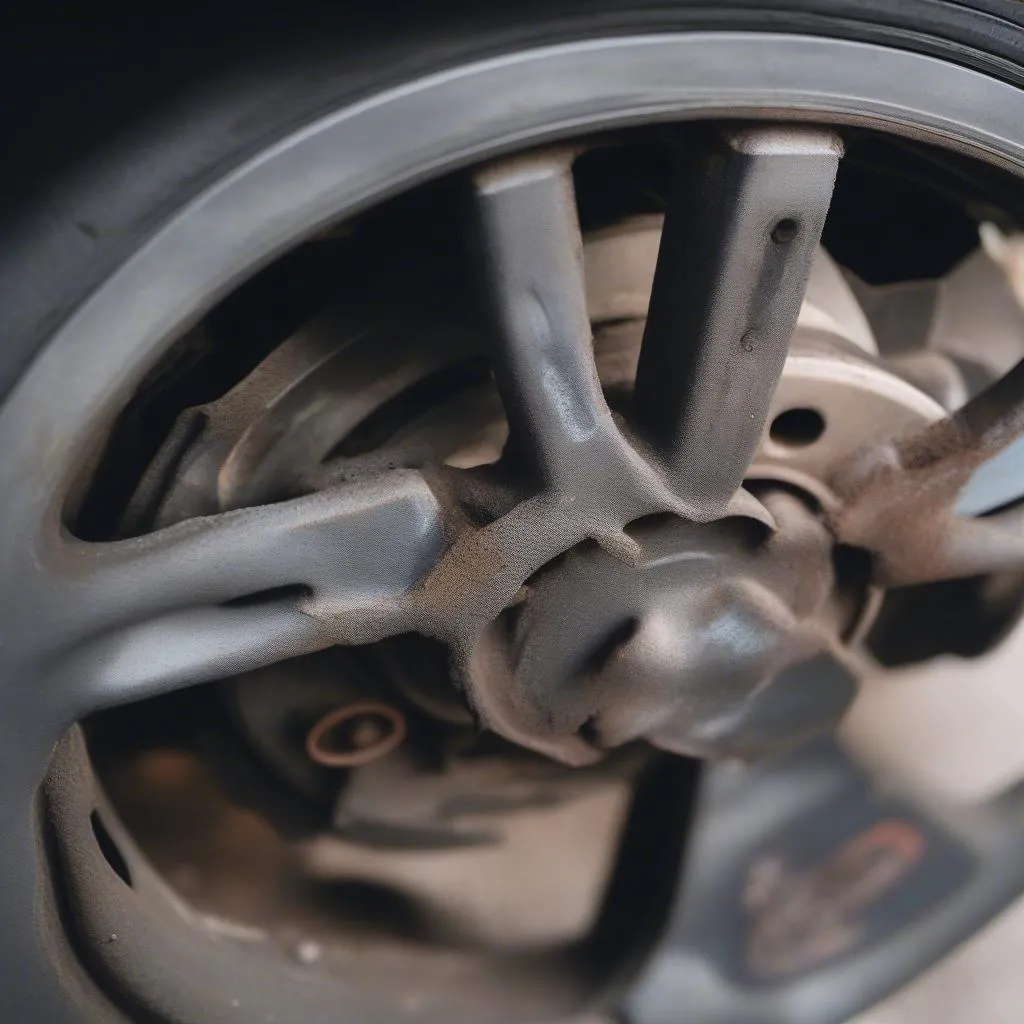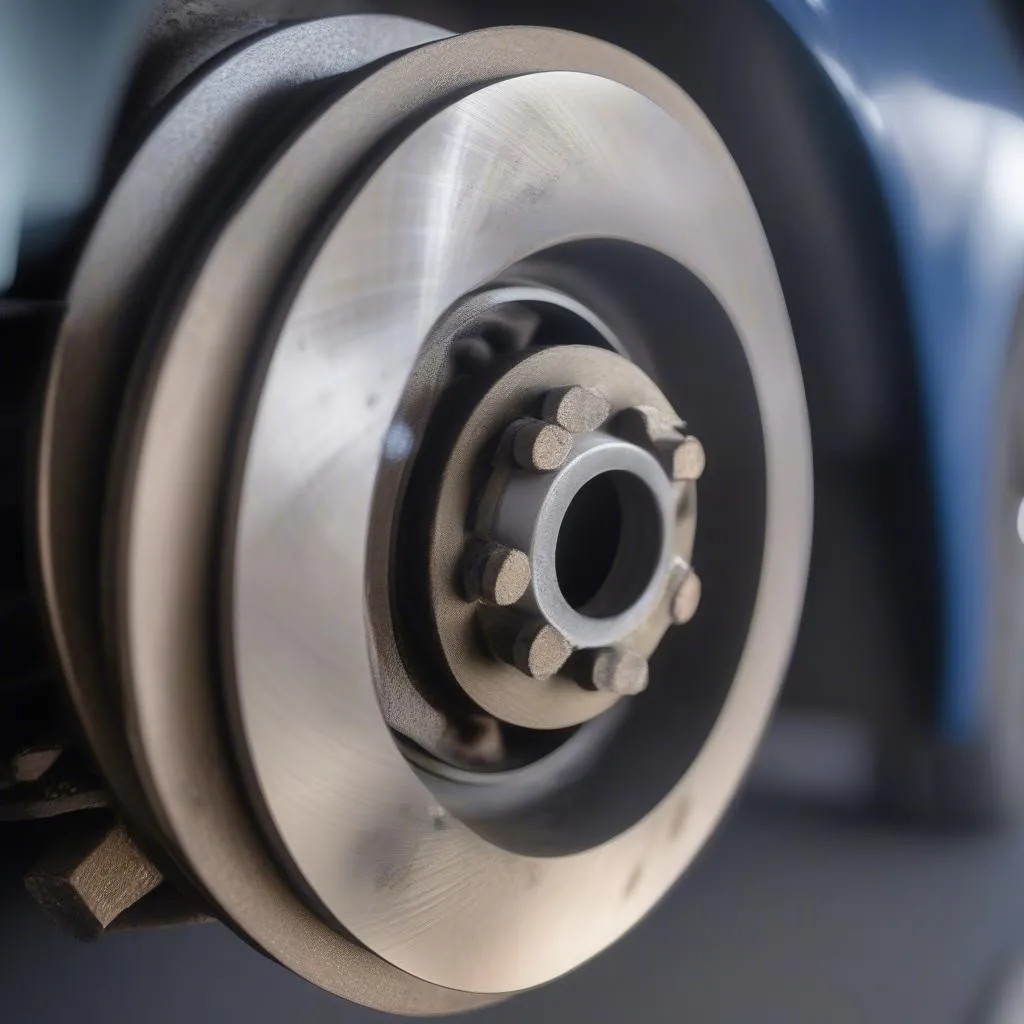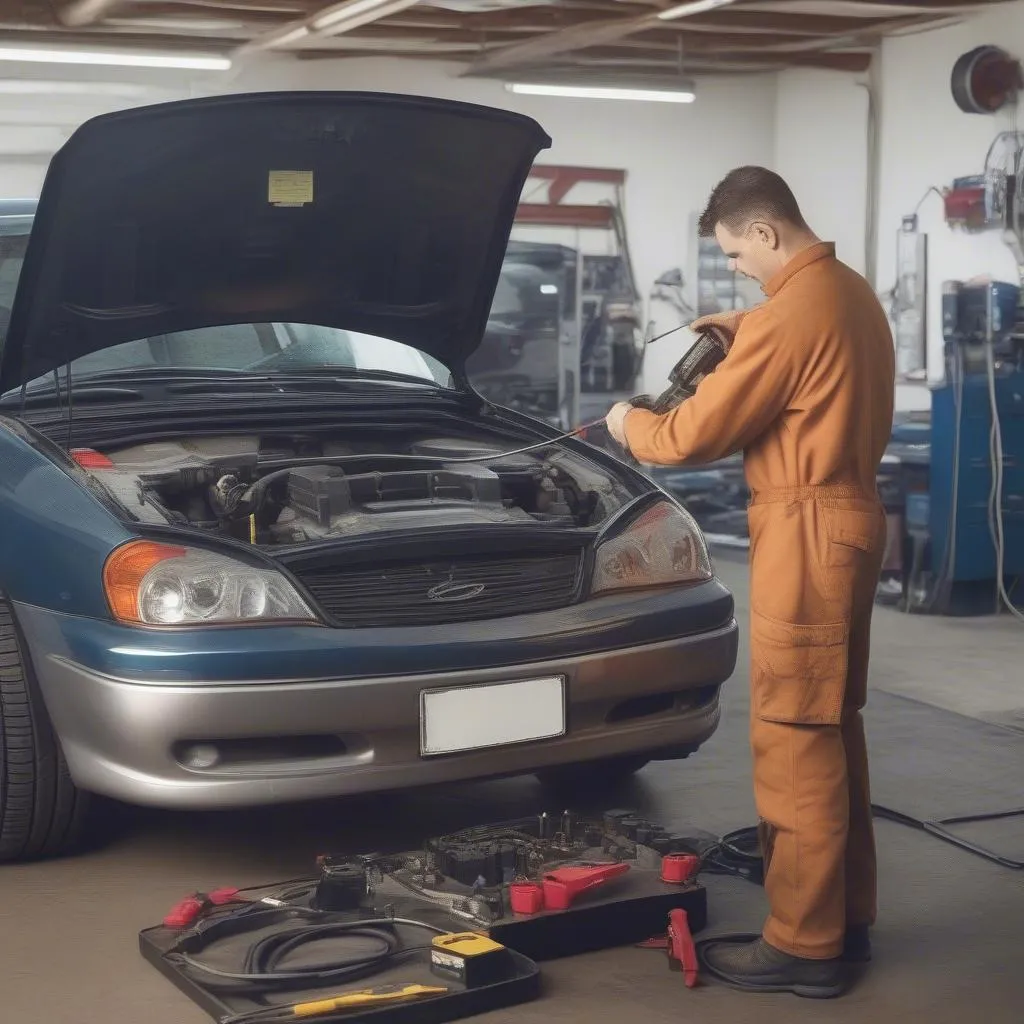Experiencing problems with your Mercedes brakes? Don’t panic. While brake issues can be unsettling, understanding the common causes and solutions can empower you to get back on the road safely. This comprehensive guide will walk you through diagnosing the issue, outlining possible repair options, and answering frequently asked questions about fixing your Mercedes brakes.
Understanding the Importance of Mercedes Brake Maintenance
Your Mercedes-Benz is renowned for its sophisticated engineering, and the braking system is no exception. Regular maintenance plays a crucial role in ensuring optimal braking performance and safety. As Robert Davis, a seasoned automotive engineer, puts it, “A well-maintained braking system is not just about stopping power; it’s about predictable and reliable performance in critical situations.”
Common Mercedes Brake Problems and Their Causes
Mercedes brakes, like any other vehicle’s, can encounter various issues. Here are some common problems:
- Soft or Spongy Brake Pedal: This often indicates air in the brake lines, a leak in the braking system, or a failing master cylinder.
- Grinding Noises When Braking: This usually signifies worn brake pads or rotors that need replacement.
- Vibration or Pulsation in the Brake Pedal: This can point to warped brake rotors, often caused by overheating.
- Pulling to One Side When Braking: Uneven brake pad wear, a stuck caliper, or a problem with the hydraulic system can cause this.
 worn brake pads
worn brake pads
Diagnosing Your Mercedes Brake Problem
Before attempting any repairs, it’s crucial to accurately diagnose the issue. Here’s what you can do:
- Check Your Brake Fluid: Low brake fluid level is a serious warning sign and needs immediate attention.
- Listen for Unusual Noises: Pay close attention to any grinding, squealing, or clicking sounds when applying the brakes.
- Feel for Vibrations: Note any pulsations or vibrations in the brake pedal while braking.
- Inspect Your Brake Pads and Rotors: If you’re comfortable doing so, check the thickness of your brake pads and look for any grooves or scoring on the rotors.
 car brake rotor
car brake rotor
Essential Tools for Mercedes Brake Repair
Depending on the specific issue, you may need some or all of the following tools to fix your Mercedes brakes:
- Mercedes-Benz Compatible Diagnostic Tool: This tool allows you to read and clear fault codes related to your braking system, giving you a clearer picture of the problem. Consider checking out Cardiagtech for high-quality diagnostic tools compatible with your Mercedes model.
- Brake Bleeder Kit: Essential for flushing and bleeding the brake lines.
- Torque Wrench: To tighten lug nuts and other fasteners to the correct specifications.
- Jack and Jack Stands: To safely lift and support your vehicle.
 car diagnostic tool
car diagnostic tool
DIY vs. Professional Repair
While some brake repairs can be handled by experienced DIYers, it’s crucial to understand the complexity of modern braking systems, especially on a Mercedes-Benz. If you’re unsure about any aspect of the repair, it’s always best to err on the side of caution and consult a qualified mechanic.
Frequently Asked Questions About Fixing Mercedes Brakes
How often should I replace my Mercedes brake pads?
Brake pad lifespan varies greatly depending on driving style and conditions. As a general rule, it’s recommended to have your brake pads inspected every 10,000-12,000 miles.
Can I just replace my brake pads, or do the rotors need replacing too?
Often, when brake pads wear down, they can cause grooves or damage to the rotors. It’s best practice to have your rotors inspected and machined or replaced as needed when changing brake pads.
What is SBC Hold and why does it malfunction?
SBC Hold is a brake-by-wire system found on some Mercedes models. It uses an electronic system to control braking pressure. Malfunctions usually require specialized diagnostic equipment and expertise to address. For more insights into Mercedes-specific repairs, you can find valuable resources at CARDIAGTECH, including articles on resetting SBC systems.
Conclusion
Addressing brake problems promptly is essential for your safety and the longevity of your Mercedes. By understanding the common causes, knowing how to diagnose issues, and deciding when to seek professional help, you can keep your Mercedes performing at its best.
Remember, maintaining your Mercedes brakes is an investment in your safety.
